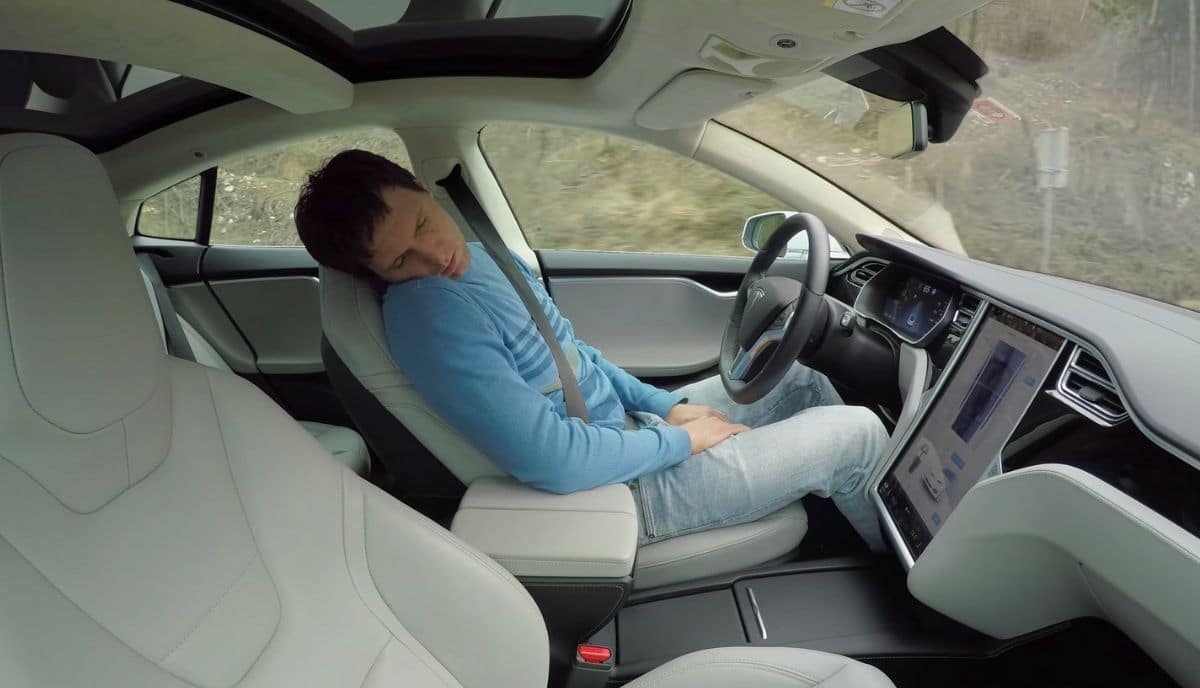
the staff of the Ridgewood blog
Ridgewood NJ, a Tesla owner in Washington State has successfully won back the $10,000 he paid for the automaker’s “Full Self-Driving” (FSD) package after proving the name — and the tech — didn’t live up to its promise.
After a year-long arbitration battle, Marc Dobin, a lawyer and longtime Tesla customer, forced the EV giant to refund him for the FSD software he had purchased for his wife’s third Tesla. His win may offer a roadmap for other Tesla owners seeking justice over what they now believe is a misleadingly marketed driver-assistance feature.
🚫 The Problem with “Full Self-Driving”
Despite the name, Tesla’s “Full Self-Driving” (FSD) package does not make a car autonomous. In fact, it still requires the driver to remain alert and take over at any time. Tesla CEO Elon Musk has spent years promising that autonomous driving is just around the corner, yet FSD remains a glorified version of cruise control.
Dobin purchased the system hoping to support his wife’s driving independence due to her declining motor skills. But not only did the vehicle never qualify for the FSD Beta program, the software also failed to deliver basic expectations of automation.
⚖️ The Legal Showdown
According to Dobin, Tesla’s performance during arbitration was as flawed as its FSD system.
“Tesla produced one witness… who didn’t know what equipment shipped with our car, hadn’t reviewed our driving logs, and couldn’t explain the software installed,” Dobin said.
Dobin argued that Tesla withheld critical information, including the now-defunct “safety score” requirement needed to access the beta version. Ironically, their insurance telematics showed high safety scores, but Tesla’s internal system never granted them access to the beta.
💸 What Makes This Case Stand Out
Dobin’s case isn’t just about a refund — it’s about calling out a tech giant for misleading branding and broken promises. The arbitration judge ruled in Dobin’s favor, agreeing that “Full Self-Driving” was nowhere near autonomous.
Tesla, meanwhile, spent far more on legal fees defending the case than the $10,000 it refunded.
“The math doesn’t math,” Dobin wrote. “Tesla fought harder to protect a flawed business practice than to deliver a working product.”
🧠 FSD’s Hardware Shortfalls
Dobin’s argument was further bolstered by Tesla CEO Elon Musk’s own admission earlier this year: vehicles with the HW3 (Hardware 3) computer won’t be capable of full self-driving. Tesla has been producing the newer HW4 computer since 2023, but hasn’t clarified if existing customers will be upgraded — adding more frustration for thousands of EV owners.
🧭 What It Means for Tesla Owners
While Dobin noted that arbitration cases don’t set legal precedent, this case could inspire a wave of similar actions from owners who feel duped by Tesla’s marketing. His advice: If you’ve paid for FSD but never received a working product, you may have a case.
📌 Key Takeaways:
-
Tesla refunded $10,000 after an arbitration judge ruled FSD wasn’t as advertised.
-
Tesla’s witness was unprepared, and the company admitted HW3 can’t support full autonomy.
-
The FSD Beta remained inaccessible to the buyer despite high safety scores from his insurance.
-
This could become a blueprint for other Tesla owners seeking refunds.
Thinking of buying FSD? Make sure you read the fine print — or you may just end up paying for an expensive cruise control system with an ambitious name.
Follow the Ridgewood blog has a brand-new new X account, we tweet good sh$t
https://twitter.com/TRBNJNews
https://truthsocial.com/@theridgewoodblog
https://mewe.com/jamesfoytlin.74/posts
#news #follow #media #trending #viral #newsupdate #currentaffairs #BergenCountyNews #NJBreakingNews #NJHeadlines #NJTopStories
